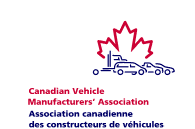The Canadian Vehicle Manufacturers’ Association (CVMA) has launched a highly misleading advertising and PR campaign against new emission standards – especially targeting individual provinces (like British Columbia) that have the courage to push ahead of limp or non-existent federal regulations.
Saying that “new cars, SUVs and light duty vans and pickups contribute just 1% of greenhouse gases in Canada each year,” and claiming that “strict new standards are coming forward nationally in both Canada and the US,” the car makers say the provinces (and presumably US states) should stay out of the process.
This is misleading on at least two counts. First, concentrating on the 1% of total Canadian emissions that come from brand new vehicles is nothing more than an effort to absolve automakers for the 12.5% of additional national emissions that pour forth from the existing fleet. Who, one might reasonably ask, made and sold all those vehicles?
Why, for the past decade or more, were automakers fighting emission standards on every front, browbeating the Canadian government and suing against new standards in California. And whose responsibility is is that North American automakers have been concentrating their advertising on their largest, least efficient models?
Modern cars last 10 to 15 years. The mistakes we make today – the lax standards that we allow to prevail – will continue to have impact for more than a decade to come, building up in inexorable 1% increments.
The second highly misleading point is that “strict new standards are coming forward nationally in both Canada and the US.” If this is true, Prime Minister Stephen Harper and President George Bush have been disguising their intentions brilliantly.
The only time the U.S. national government ever addresses automotive emission standards is after California and a handful of other states lead the way. The air quality that we enjoy in all North American cities today is a credit to pollution standards initiated in California in the late ’60s and early ’70s. Far from “de-linking from the current integrated North American approach to auto design and production,” new state regulations have tended to force improvements that everyone gets to enjoy.
A similar point can be made in relation to the CVMA threat that “families, businesses and farmers would have far less choice of the vehicles they need” if Canadian provinces start matching California’s emission demands. Lack of choice is precisely the problem. Canadians have a wide selection of unnecessarily huge trucks and recreational vehicles, but a pathetically poor set of choices when it comes to innovative new technology. The car makers clearly won’t move until they are pushed, and the governments of Harper and Bush have shown that they won’t move unless regional leaders like California Governor Arnold Schwarzenegger and B.C. Premier Gordon Campbell lead the way.
This ad campaign is the worst kind of old-style public manipulation. It shows that while the automakers could quickly become an important part of the climate change solution, they have chosen instead to press on, denying, with the 1% figure, that the choices Canadians make matter in the world.
Our streets are (relatively) clean of litter and safe from muggers and murderers because we have decided that some things are intolerable and we have created a system of rules and laws designed to make everyone toe the line.
In dodging its responsibility, in claiming that its 1% annual contribution to our climate crisis is somehow irrelevant, the CVMA is pressing its own dirty, self-serving policies on the world, passing up any chance to be part of the solution and continuing to make itself a huge, cynical part of the problem.
Like what you read on DeSmogBlog? Subscribe to our RSS feed here.
Subscribe to our newsletter
Stay up to date with DeSmog news and alerts






